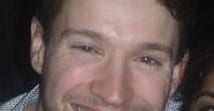Liverpool
Liverpool Medical School was established in 1834 and has since become a leading research institute.
The medical school is based in Liverpool City Centre. The city is a vibrant hub of culture in the North West of England, with easy access to other large cities, such as Manchester.
About The Course
Like the majority of other UK medical schools, Liverpool teaches medicine via a mixture of lectures, case-based learning sessions, and clinical placements.
Students can expect to be placed at hospitals all across Merseyside, both In Liverpool and the Wirral. Students also have the advantage of possibly being placed at Alder Hey Children’s Hospital and Liverpool Women’s Hospital, two leading centres in the country.
Liverpool’s MBChB degree is delivered through a spiral model that is revisited with increasing complexity throughout the course. Students will become lifelong learners who continuously commit to their professional development.
The A100 course is split into 5 sections, one for each year of study.
Structure Of The Course
Year 1
Core Clinical Science
Biological science will be taught via lectures (both online and in-person) and seminars, anatomy classes, and case-based learning sessions. There is also a research module in which students will have their own projects. Assessment will consist of formative exams at the end of each study block.
Year 2
Pathology and Disease
In year 2 students will primarily study illness via case-based learning and critical analysis sessions, separated into seven four-week blocks. Students will also have a four-week clinical placement to introduce the healthcare environment.
Year 3
Becoming a Practitioner
Students will spend the majority of their time on clinical placement in year 3, exploring specialities such as cardiology, infectious disease, surgery, general practice and paediatrics. Alongside placement, students will have CBL tutorials, safe prescribing sessions and clinical skills.
Year 4
Broadening Expertise
Clinical placements continue throughout year 4, allowing students to explore wider specialities such as psychiatry, end-of-life care, obstetrics and gynaecology, and geriatrics.
There are multiple assessments that need to be successfully completed before year 5, including an Assessment for Progression (AFP), Applied Knowledge Test (AKT), and satisfactory completion of the clinical E-portfolio. After the assessment period, students will undertake an elective placement of their choice.
Year 5
Preparing for Practice
Placements in year 5 are longer in duration and aim to prepare students for life as junior doctors.
Academic Requirements
GCSEs: Applicants must have 9 GCSEs including a minimum of grade 6 (B) in English Language, Mathematics, Biology, Chemistry and Physics (or combined and triple science). Liverpool uses a points system for the best 9 GCSEs and applicants must score a minimum of 15 points to be eligible to apply. The rules for the point system are as follows:
A*/A/7/8/9 = 2 points
B/6 = 1 point.
A-levels: AAA. To include Chemistry and either Biology, Physics or Mathematics. A*AB may also be accepted; however, the A*A grades must be in Chemistry and the other science listed above.
Scottish Higher: AAAAB. Chemistry and one of Biology, Physics or Maths.
Scottish Advanced Higher: AA. Advanced Highers (SCQF level 7) in Chemistry and one of either Biology, Physics and Maths at grades AA.
International Baccalaureate: 36 points Higher level (HL) a minimum of 6,6,6 to include Chemistry together with either Biology, Physics or Mathematics and a third academic subject. 5,5,5 at standard level (subjects not offered at HL)
Alternatively, 36 points overall (at first sitting): Higher level (HL) a minimum of 7,6,5 but the 7 and 6 grades must include Chemistry together with either Biology, Physics or Mathematics in any order and 5 in a third academic subject. 5,5,5 at standard level (subjects not offered at HL).
IELTs (International applicants only): 7.0 overall, with no component below 7.0.
Bachelor's Degree (Graduates only): Graduates can apply to the A100 and the A101 (graduate-entry) courses.
Mitigating Circumstances
Resits policy: A-level resits are usually considered if a minimum of ABB was achieved in the first sitting. There is a separate form that needs to be filled out by applicants sitting their A Levels that can be found on the website listed at the bottom of the page. Offers made to applicants who are resitting will usually require grades higher than the standard offer of AAA.
Extenuating circumstances: Liverpool Medical School will consider mitigating circumstances and offer reduced entry requirements if they feel that the students qualifies. If a student meets the mitigating circumstances criteria, they need 12 points in the GCSE scoring system with a minimum of grade 6 in English Language and Mathematics. UCAT and interview performance flexibility vary annually. There are approximately 50 places for contextual applicants.
Deferred entry: Deferral requests will be considered on a case-by-case basis but are only possible for home applicants applying to the A100 course.
Transfers: Liverpool does not routinely allow transfers for the medicine course, however, each application will be considered on a case-by-case basis.
Further Entry Requirements
Work experience: There are no specific requirements relating to what work experience applicants must possess, however, Liverpool Medical Schools expect applicants to have experience that displays the necessary attributes to be a good doctor. This may include customer-facing employment or voluntary work.
Personal statement: Personal statements are not routinely assessed however may be used when making decisions regarding offers. The personal statements should include evidence of caring for the community, awareness and insight into healthcare careers, good written communication and evidence of understanding of the values that doctors must possess.
Admissions Process
Liverpool will assign points to an applicant’s GCSE grades and UCAT scores when deciding whether to invite them for an interview.
Admissions Tests:
UCAT ✅
(GAMSAT for graduates applying for A100 or A101 program)
UCAT cut-off scores vary for each application cycle. A score considered “competitive” for 2023 entry was 2660 for home applicants and 2770 for international applicants.
Interview Type: MMI
Interview Topics: Most MMI will be delivered on-campus with a small number being conducted online.
The following topics are regularly assessed at Liverpool interviews:
- Core values and attributes needed to be a good doctor
- Ethics
- Teamwork
- Communication
- NHS hot topics/health news
- Basic maths
- Work experience
Admissions Statistics
| Total number of applicants: | 3720 |
| Total number of places: | 279 |
| Total number of entrants: | 279 |
| Acceptance rate: | 7.50% |
Fees
| Home students: | £9250 pa |
| Rest of UK: | TBC |
| International students: | £42699 pa |
Teaching Methods
Teaching style: Teaching is delivered by lectures, practical and small group sessions and clinical skills sessions (where students will learn how to examine the components of the systems studied, as well as take part in simulation exercises).
Intercalation mode: As you have been studying medicine at an advanced level for at least three years, if you opt for an undergraduate course for your intercalation year, you are qualified to dive straight into the final year of your chosen programme.
Graduate Prospects
About 99% of graduates of the 5-year course are employed 15 months after the end of the MBChB, with average earnings at the time being £34,000. 93% of graduates are actively using the skills they learnt on the MBChB in their current line of work.
FAQs
What UCAT score is needed to be accepted into Liverpool Medical School?
The average UCAT score of candidates invited to interview in 2023 was 2793 for home applicants and 2859 for international applicants.
Is the University of Liverpool prestigious?
The University of Liverpool is a Russel Group University and is associated with 9 Nobel prize winners.
What is special about Liverpool Medical School?
Liverpool’s spiral model for teaching medicine is unique to them. They are also known for placing a large emphasis on the well-being of their medical students.
Does Liverpool use an integrated course structure?
Liverpool uses a ‘spiral model’ for teaching medicine. This includes aspects of both a traditional and integrated style of learning.


